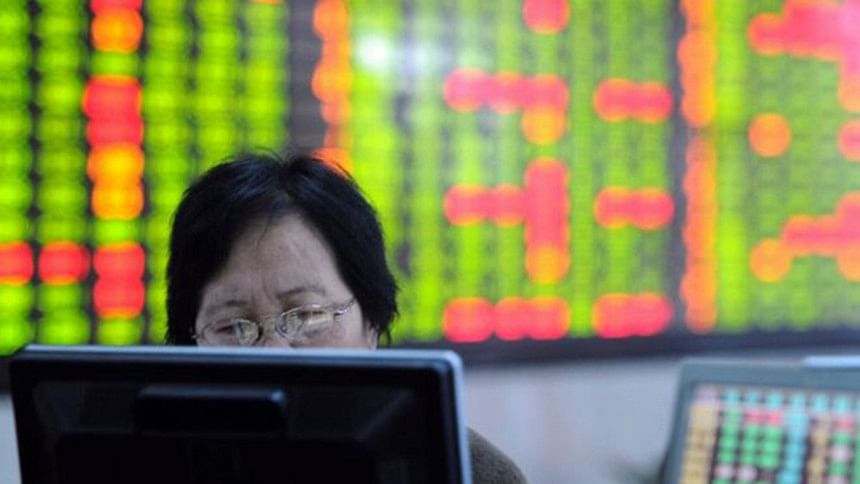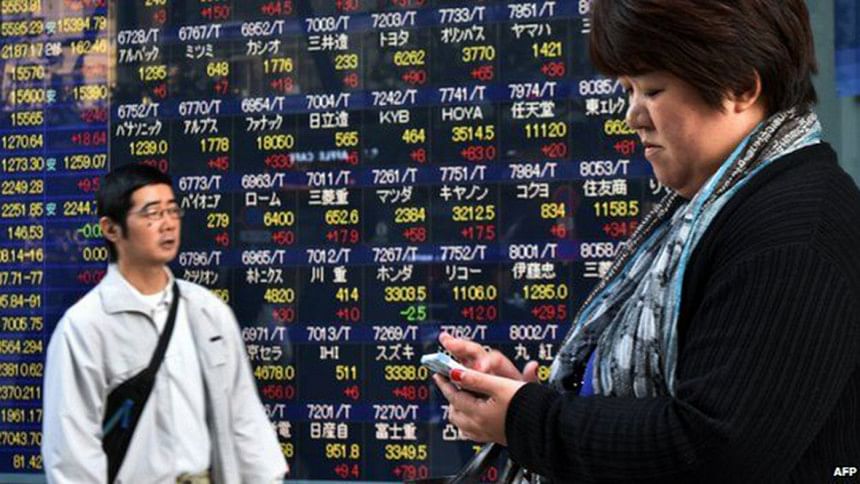Chinese shares dip 8% despite initiatives

Mainland Chinese shares continued to slide on Wednesday, falling more than 8% on opening.
The slump came despite more moves by China's regulators to try and stabilise the recently volatile market.
The Shanghai Composite had recovered some losses by mid-morning and was down 3.88% at 3,582.50.
Hong Kong's Hang Seng index was down 4.5% at 23,851.22, mirroring the mainland's falls.
Chinese regulators made a string of pledges on Wednesday to try and ease the "panic sentiment" in the market.
These included making more money available at its state-backed margin finance firm - which many rely on to borrow funds for investment.
And insurers were given the go-ahead to invest more in blue chip stocks - with the industry watchdog raising limits from 5% of their total assets up to 10%.
But none of the announcements inspired confidence in morning trade.
Greece worries
Markets in the rest of Asia were also lower - as investors remained cautious about the uncertainty over Greece's position in the eurozone and the lack of a resolution to the debt crisis.
Eurozone leaders have given Greece until the end of the week to come up with a proposal for sweeping reforms in return for loans that will keep it from crashing out of the eurozone.
Japan's Nikkei 225 index was down 1.52% to 20,067.59.

Investors took little comfort from data that showed that Japan recorded its second highest monthly current account surplus in the past five years in May, beating expectations.
The current account - a wide measure of trade - saw a surplus of 1.88tn yen ($15.3bn; £9.9bn) in May. That marks the eleventh consecutive surplus on a boost from a weaker yen.
In Australia, shares were lower as the price of iron ore - one of its biggest exports - fell almost 6% to a three month low.
The benchmark S&P/ASX 200 index was down 1.97% at 5,471.30.
Shares of mining heavyweights BHP Billiton and Rio Tinto weighed on the index, down 2.7% and 2.6% respectively.
South Korea's Kospi index was lower by 1.29% to 2,013.95 as investors looked forward to the central bank's decision on interest rates on Thursday.
The Bank of Korea is widely expected to keep interest rates on hold after cutting them last month to boost the economy from the outbreak of Middle East Respiratory Syndrome (Mers).

 For all latest news, follow The Daily Star's Google News channel.
For all latest news, follow The Daily Star's Google News channel. 



Comments